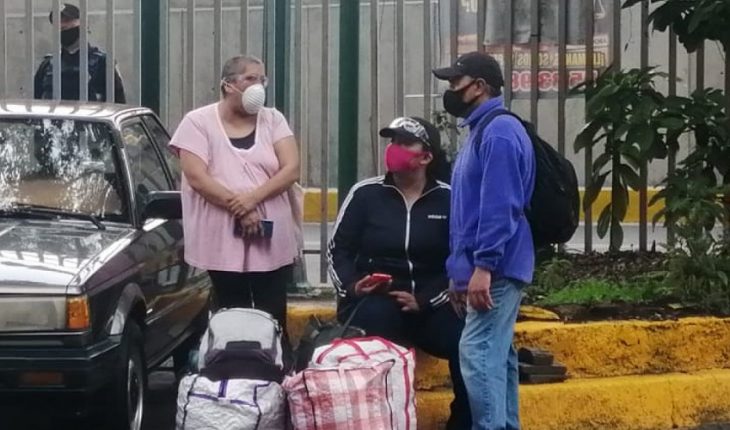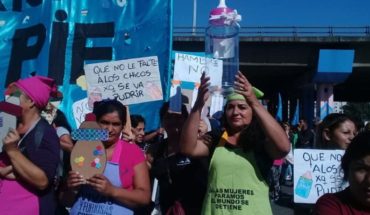Activists living in Mexico City urged the passage of an “Inquilinal Law” to ensure that no person is evicted from their home for lack of rent payment during the COVID-19 coronavirus pandemic and facilitates negotiation mechanisms between landlords and tenants.
The #RentaJusta initiative is promoted by the Neighborhood Observatory 06600 of Colonia Juárez. The numbering in the name of the collective is a zip code and alludes to the roots of the neighbors who started the movement, explains Sergio González, leader of the collective.
You may be interested in ‘I’m going to have to leave my apartment’: the crisis that hits tenants and landlords
The organization proposes that, urgently, the government of Mexico City prohibits the evictions of people who cannot continue to pay their home rent for unemployment or for the reduction of their income.
The proposal notes that the State should assume a central role of regulation and balanced mediation between landlords and tenants, so that assistance to one of the parties does not unduly affect the owners.
“There needs to be legal provisions to paralyze, reduce or suspend and extend, without penalty, payments of rental of used properties for housing or micro and small family businesses at the request of the person who checks their situation of need. The State shall facilitate agreement between the parties, and even establish a mediation body between them. The owner of a home who can demonstrate that he depends on the rent to meet his basic needs and that he has not charged it for the reasons indicated above must receive support from the State so that the measure is balanced and does not harm either party,” the proposal states.
Animal Político released testimonies of people who had difficulty continuing to pay their apartments or establishments due to falling income during the pandemic, and also stories of smallholders who, although they agreed in good faith to negotiate with their tenants and lower the amount of income, they said they were reaching the limit of their possibilities.
“We are interested in protecting the landlord and also the tenant, and we believe that the government would have to build a series of stimulus for the small tenant, because there is also what is called the great fork, that rents entire buildings for housing and offices, and we consider that the law should not give it the same treatment as a person or a family that has a property on which the entire economy depends, on the income of that property property, which can be a commercial premises or a place of housing,” explains González.
It details that, with the help of the International Habitat Coalition (HIC) and UNAM and ITAM academics, the Neighborhood Observatory raised a survey in May of 2,000 people who lease in Mexico City and the metropolitan area to learn about their difficulties in paying income from the health crisis.
The results report notes that 256 people were affected by evictions in the midst of COVID-19 emergency. It also states that 63% of people renting their home face difficulties in paying, and 61.5% anticipated that they will not be able to cover the payment for the next three months.
“We developed a survey that would allow us to have hard data to show the CDMX government the crisis that is coming: that is that many people will end up declaring themselves insolvent of the rents they pay,” González warns.
Other elements of the Neighborhood Observatory’s citizen initiative include the State regulating the housing price market to prevent them from increasing during the pandemic; that mechanisms are created to monitor the contractual relationship between tenants and landlords to sanction abuses of one of the parties, and to enable temporary shelters for the homeless, with access to all services to prevent the outbreak of infection of the new coronavirus.
González argues that legislation like this – which has already been introduced to local deputies in Morena – would not only guarantee hundreds of families access to the right to decent housing, but that by seeking the long stay of families in one place, it would also contribute to strengthening the social fabric and combating insecurity.
“We seek to be legitimized to guarantee the right to adequate housing and to prevent the destruction of the social fabric and the forced displacement of people who lose their roots to a territory, that most of them end up going to conurbated areas, losing their right to the centralDad. You have to guarantee the prevalence of people in your home, in your building, in your neighborhood, with your community, and recognize them as builders of the social fabric and therefore subscribers to a safe environment to inhabit a space”, explains the activist.
What we do in Animal Político requires professional journalists, teamwork, dialogue with readers and something very important: independence. You can help us keep going. Be part of the team.
Subscribe to Animal Politics, receive benefits and support free journalism #YoSoyAnimal.





